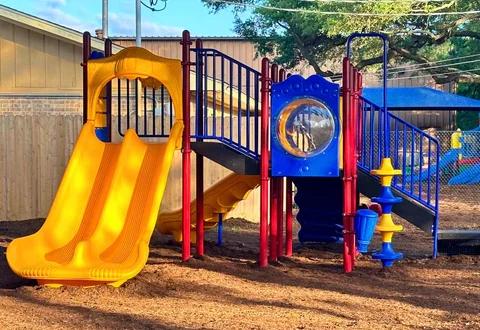Introduction
Child care is much more than supervision. It’s the basis for a child’s social, emotional and intellectual growth. Children learn more quickly in the early years than in any other period of their lives. A safe, loving and stimulating environment is crucial to shaping the person they will become. Quality child care is important for healthy development and lifelong learning, whether it’s at home, daycare or with a caregiver.
Why Child Care Matters
Children require more than food and shelter. Children need guidance, interaction and the chance to explore their surroundings. Quality child care is essential:
- Encourages brain development
- Social and communication skills are developed.
- Teach emotional regulation and independence
- Play and structured activities can support early learning.
The early years are the building blocks of a child’s future success–academically, socially, and emotionally.
Child Care Types
Different types of childcare are available to meet the families needs:
1. Parental Care
It is a great way to create a close bond and reassure your child. It is the most natural way to care for a child, especially during early childhood.
2. Daycare Centers
These facilities provide care to children in a group setting. These licensed centres provide structured routines, education activities, and trained staff in order to promote development.
3. Home Based Care
This is also known as family daycare. It involves small groups being cared for at a caregiver’s home. This type of care provides a warm, homey environment with personal attention.
4. Nannies and Babysitters
Individual caregivers offer one-on-one childcare in the home of the child. It can be flexible, but the quality varies depending on how experienced and trained the caregiver is.
What Qualifies Child Care as “Quality?”
It’s not just about keeping kids safe but also about helping them to thrive. Some of the key features are:
- Clean and Safe Environment Children require a place that is clean, safe, and free of hazards.
- Caring and Trained Staff
- Caregivers should know about child development and be warm, patient, and consistent.
- Stimulating activities
- Play-based learning, music and outdoor time encourage curiosity and cognitive development.
- Emotional support
- Children need comfort, affection and positive attention in order to feel valued and secure.
- Healthy Routines
- Regular naps and outdoor play are essential for physical well-being.
The Benefits of Good Childcare
For Children
- Improve your language, math and social skills
- Self-confidence and self-esteem improved
- Transition to school easier
Parents:
- Enjoy peace of mind that their child is happy and safe
- Ability to manage work, studies, or responsibilities
- Children can be raised in partnership with professionals
Challenges to Child Care
Many families are faced with challenges despite the obvious benefits.
- Cost: High-quality child care is expensive. For some, it’s out of their reach.
- Availability: There are many waiting lists in some areas, or there are not enough options.
- Quality Differences Not all providers are up to high standards and/or properly regulated.
The government and the community must work together in order to provide affordable, high-quality childcare for all families.
The role of parents and communities
The parents are the ones who will choose and support child care. Asking questions and being involved in your child’s routine daily will help ensure a positive outcome.
Community groups can help by:
- Supporting local childcare centres
- Create child-friendly public places
- Offer parenting education and resources
Conclusion
The future of your child is worth investing in. Children who are loved, given attention, and have structured care are more likely to grow up to be confident, capable, and compassionate. As a community, we must ensure that children have access to high-quality child care. It is essential for building strong families and bright futures.





